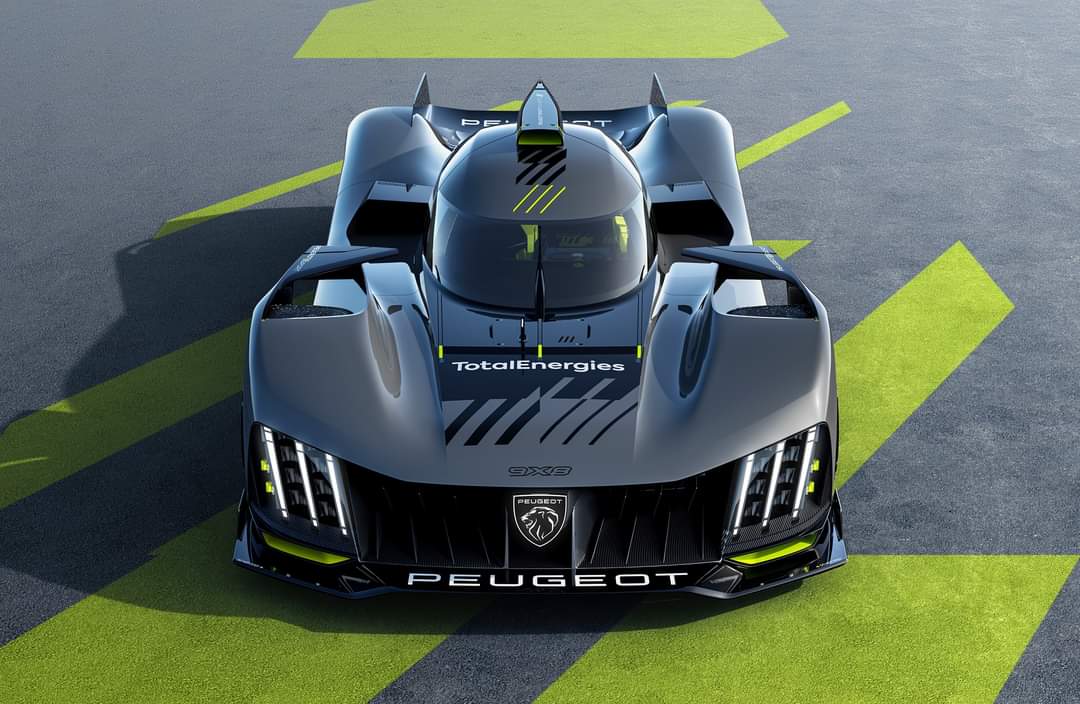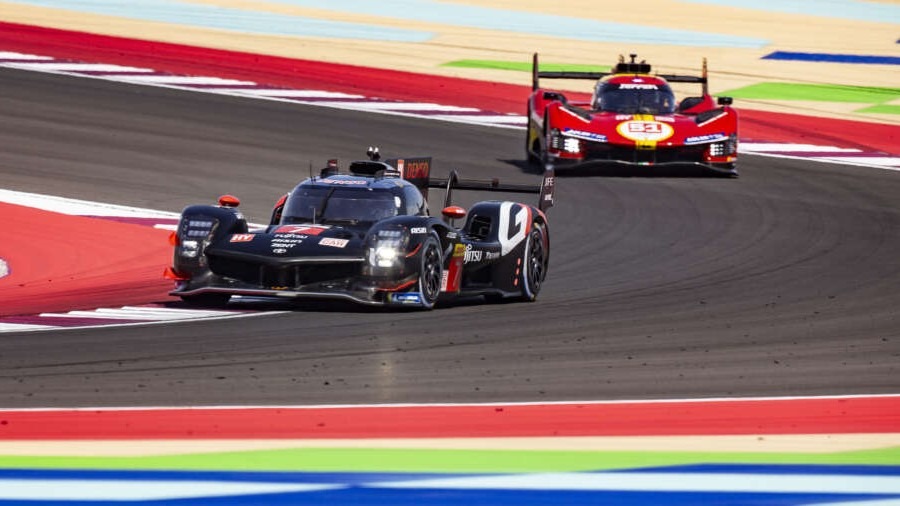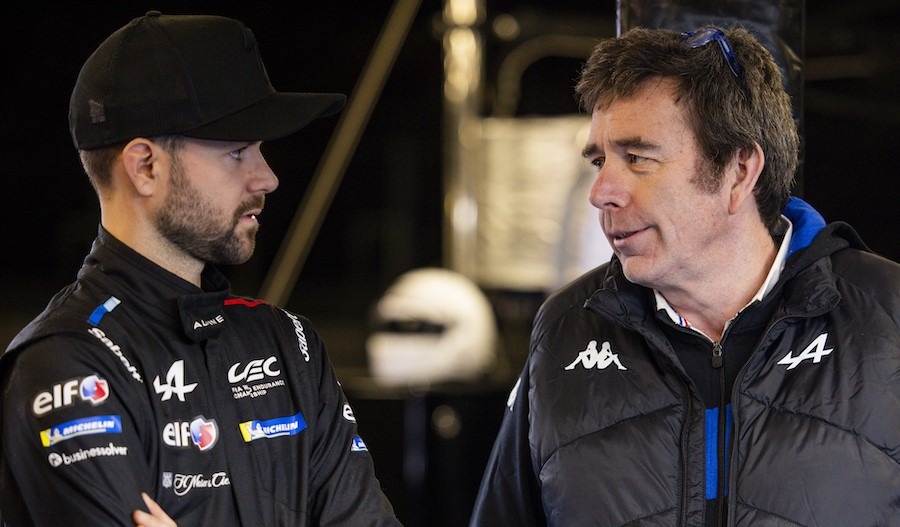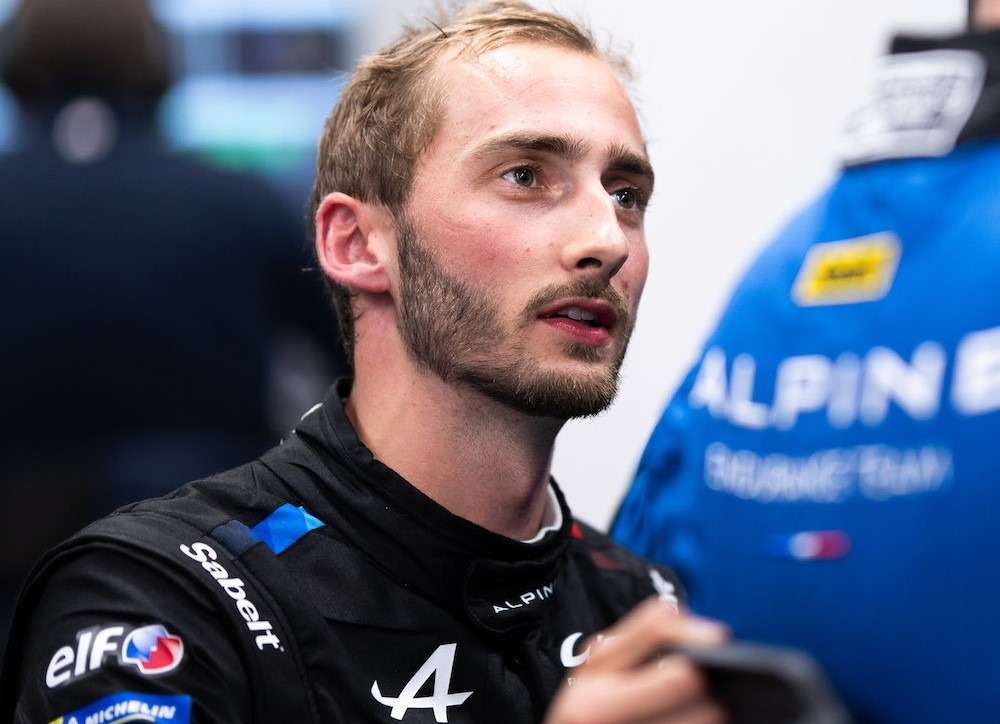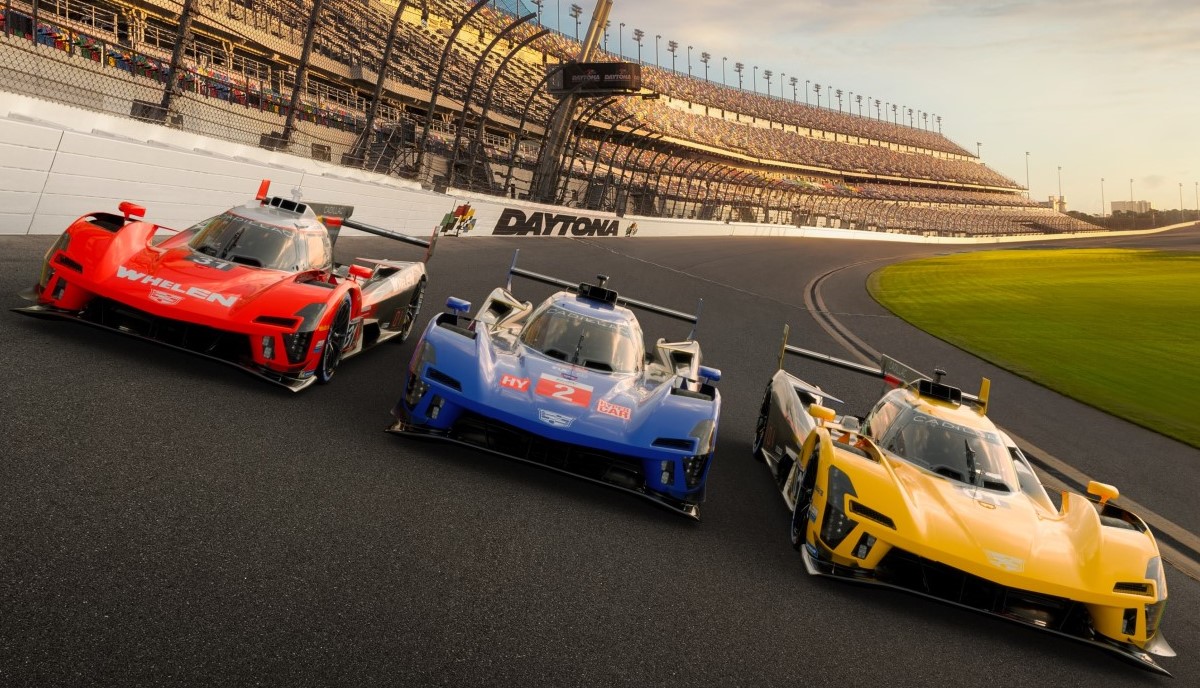Peugeot in 2019 announced plans to enter the new Le Mans Hypercar (LMH) class of the World Endurance Championship, and on Tuesday the French automaker finally revealed its contender.
It’s called the 9X8, and Peugeot plans to enter it for the first time in the 2022 season. Currently competing in LMH are Toyota, Scuderia Cameron Glickenhaus and Alpine (with a grandfathered LMP1). Ferrari is also committed to LMH but won’t be ready until 2023.
Peugeot plans to enter two 9X8s in the 2022 season and has signed up several top drivers including ex-Formula One drivers Paul Di Resta and Kevin Magnussen, and 2013 Le Mans winner Loic Duval.
The regulations for LMH cars call for hybrid powertrains with a maximum combined output of 670 hp and a minimum weight of 1,030 kilograms (approximately 2,270 pounds). In the 9X8, there’s a 2.6-liter twin-turbo V-6 mated to a 7-speed sequential transmission driving the rear wheels, and an electric motor-generator driving the front wheels.
Electricity recovered from the motor-generator is stored in a 900-volt battery pack developed by Saft, a subsidiary of oil company and Peugeot technical partner Total. The pack is housed in a carbon casing behind the driver, and underneath the fuel tank.
Pictures of peugeot 9X8
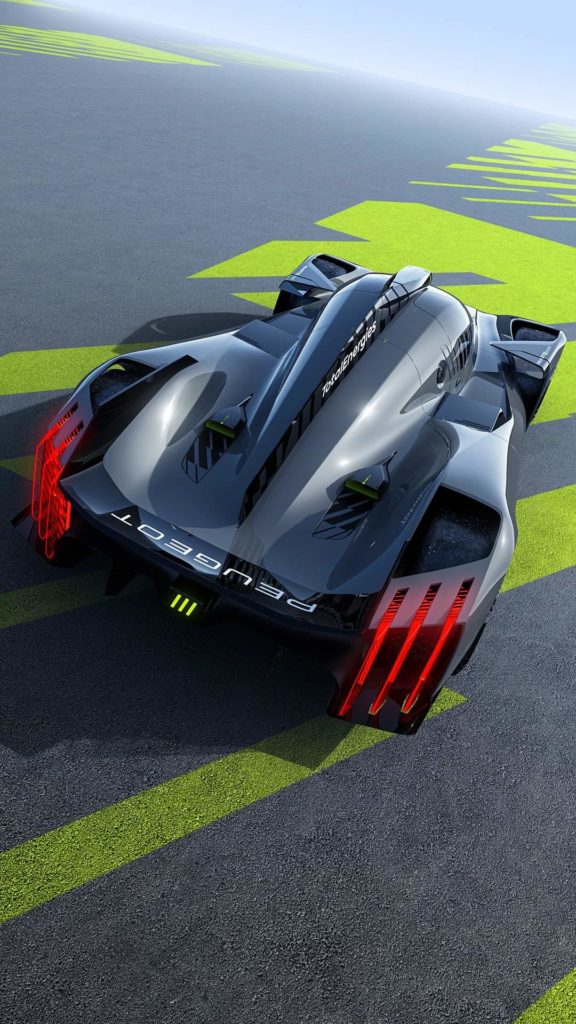
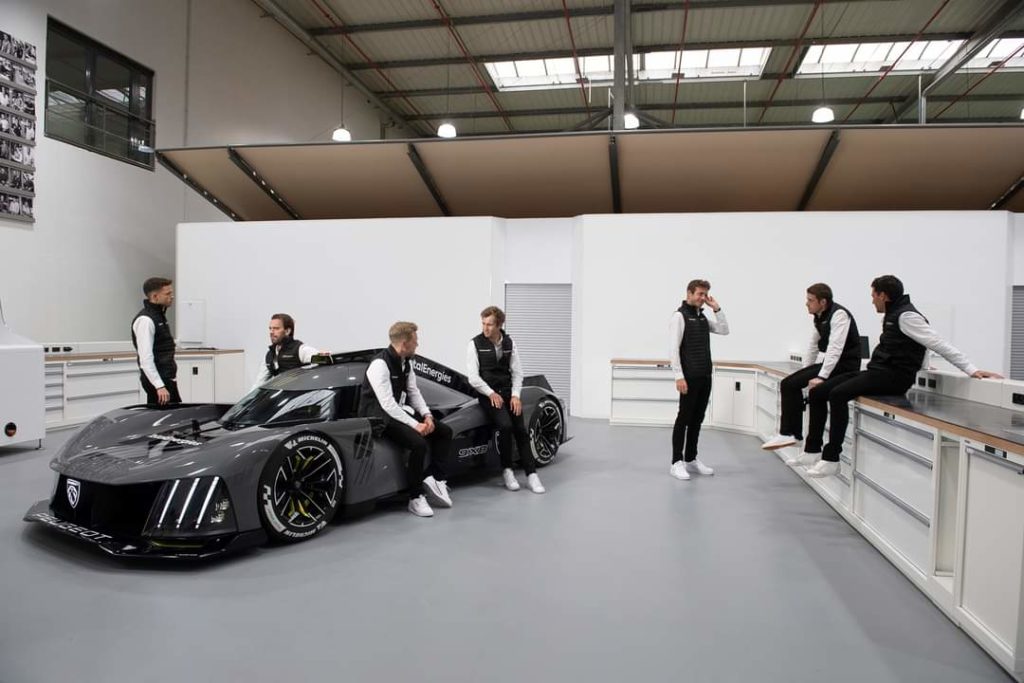
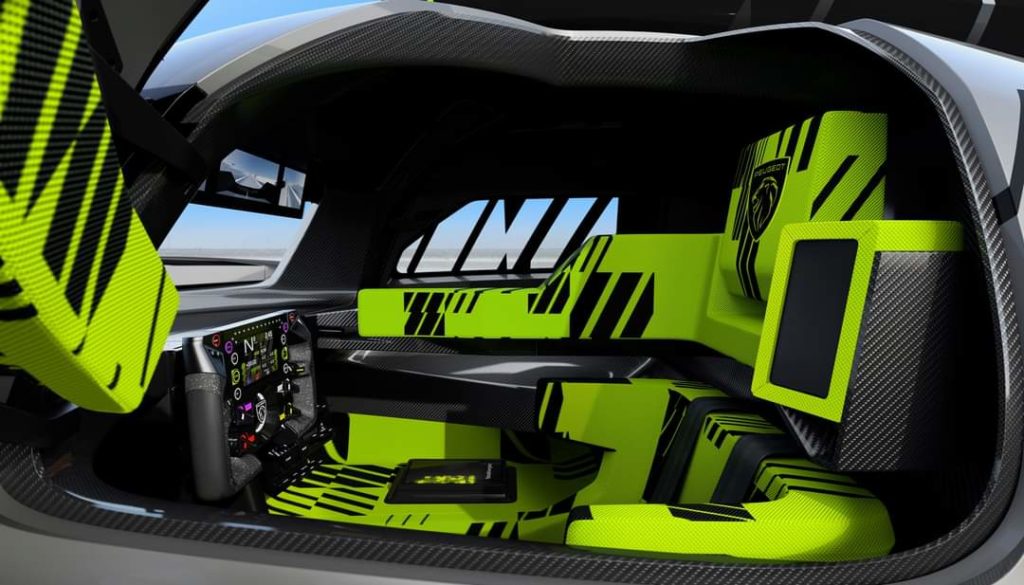
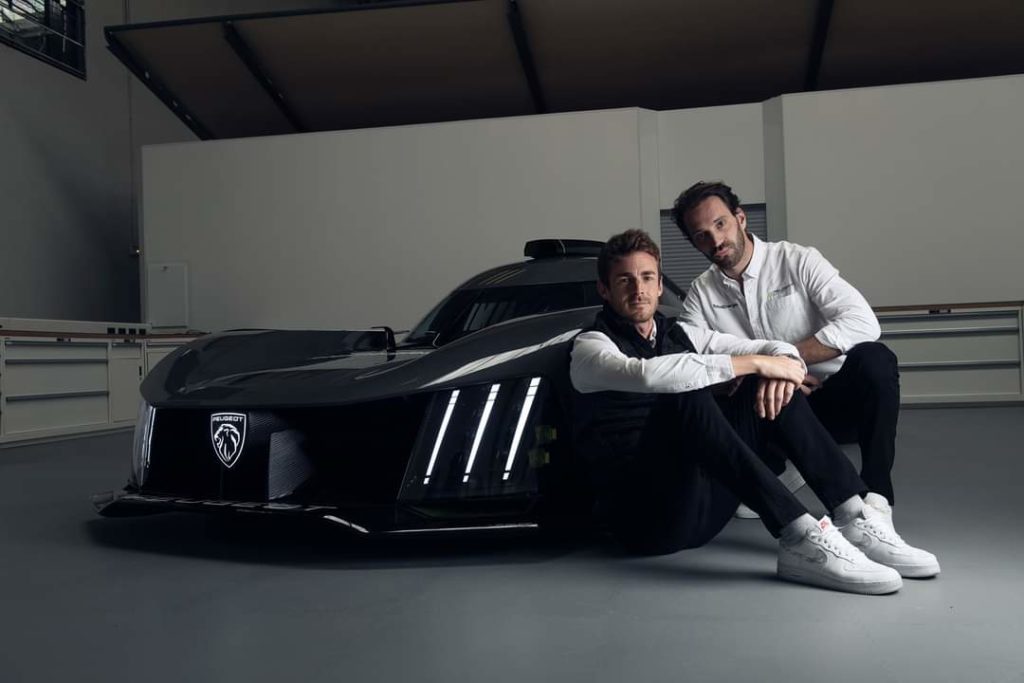
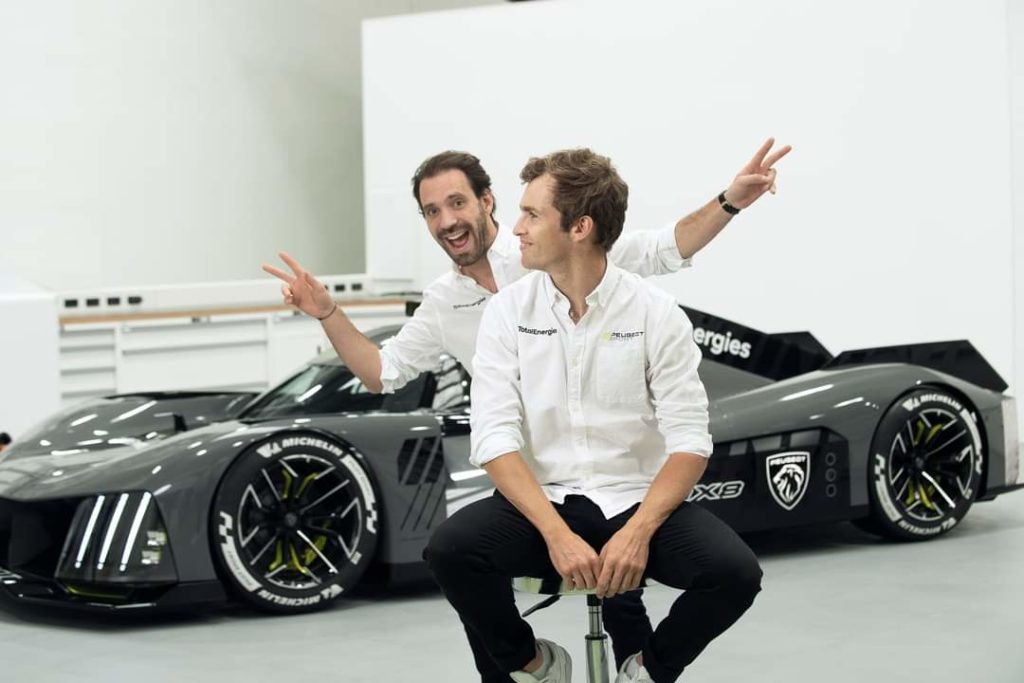
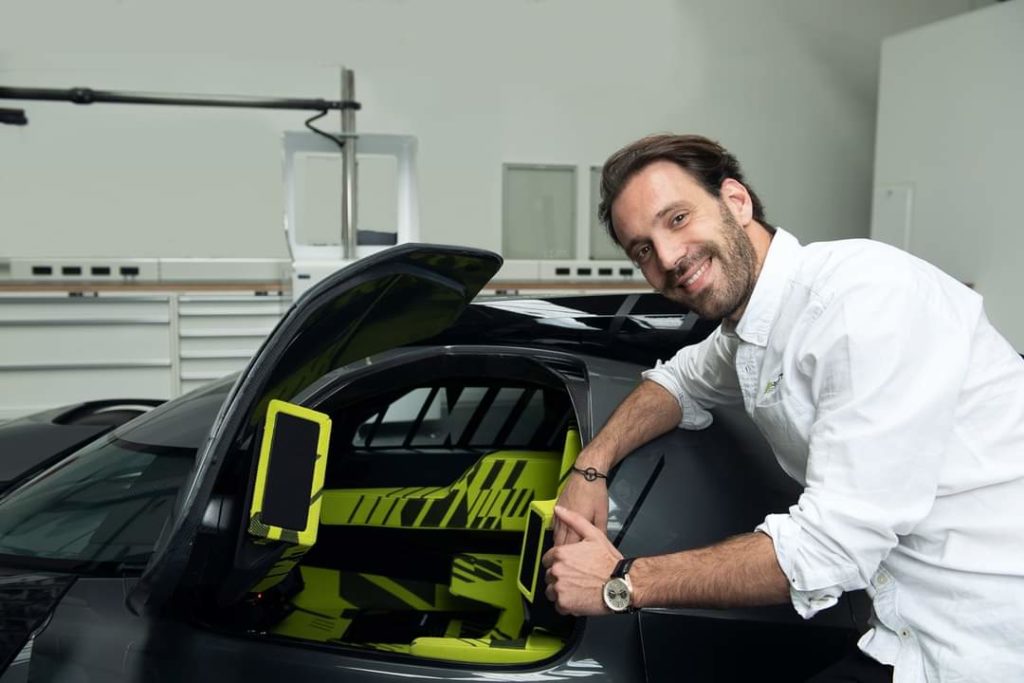
Interestingly, the 9X8 is completely devoid of a rear wing, which is unusual for a modern race car. Peugeot doesn’t want to reveal its secrets but hinted that the rest of the car’s aerodynamic efficiency is what makes the wing-less design possible.
Under the current rules, teams also need to offer a vehicle with a similar powertrain concept to their LMH cars for public sale, which Peugeot will do with future performance hybrid models. Toyota and Glickenhaus are taking the more extreme option of offering road-going hypercars derived from their respective LMH racers.
Peugeot has a long and successful history in top-level endurance racing, with its 905 and 908 prototypes racking up numerous wins, including three at Le Mans. However, it’s going to be tough with top team Toyota competing in 2022, and in 2023 and beyond Peugeot will also have to contend with Ferrari in LMH, as well as Audi, BMW and Porsche competing at the top level in the separate LMDh class.
